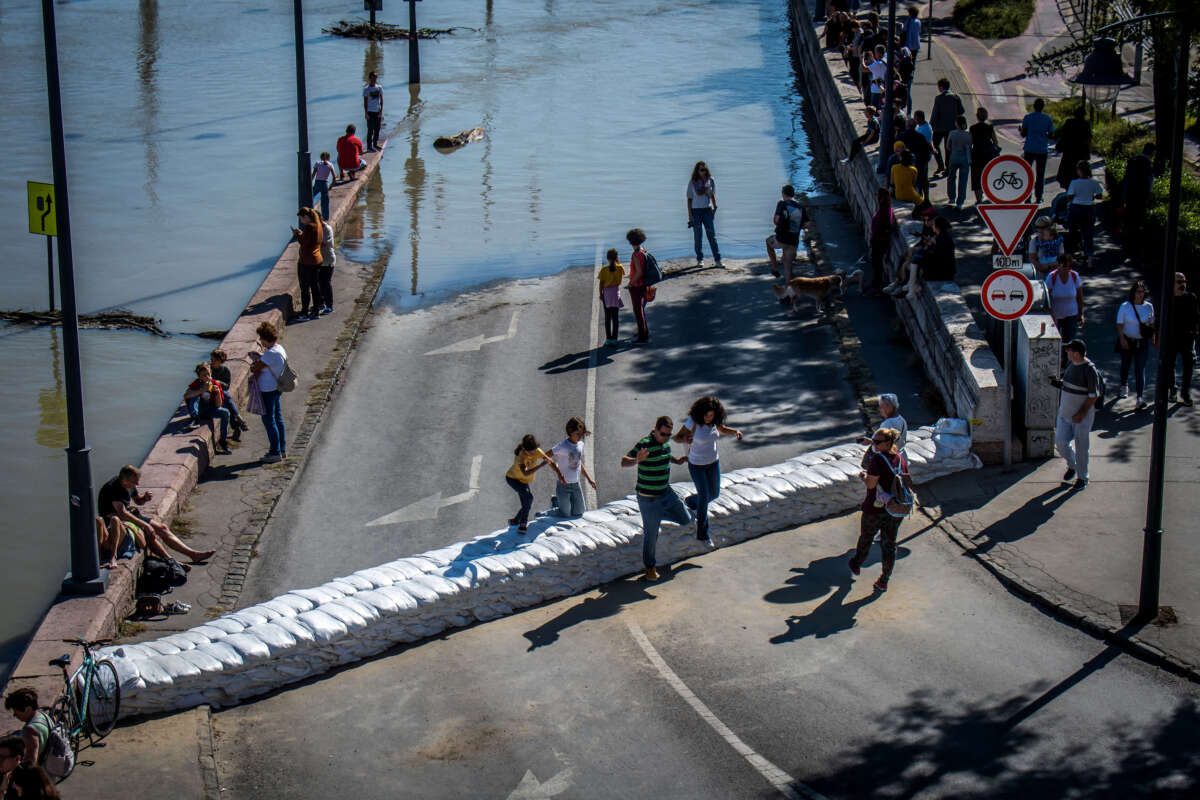Support justice-driven, accurate and transparent news — make a quick donation to Truthout today!
A large storm system that affected parts of Central and Eastern Europe earlier this year was two times more likely due to the effects of human-made climate change, a new report indicates.
Storm Boris, which affected countries like Austria, Poland and Romania in mid-September, resulted in catastrophic floods that killed around two dozen people. In many cities, however, early warnings from weather forecasters allowed people time to prepare, and infrastructure improvements protected residents from the worst effects of the floods.
While such preparations are lifesaving, it is also essential to limit the amount of fossil fuels that are being put into the atmosphere to ensure that the climate crisis doesn’t worsen in the future, experts have said.
“Unless we stop burning fossil fuels, this rainfall and the associated flooding will only get worse,” said Friederike Otto, climatologist at the Imperial College London and a co-author of a report from World Weather Attribution, an international organization of scientists and meteorologists who study the role climate change plays in extreme weather events.
That organization’s analysis found that the massive rainfall during Storm Boris was twice as likely due to the effects of human-made climate change.
The storm produced between 7 and 20 percent more rain than a similar storm from the pre-industrial era, the report concluded.
The climate crisis has increased the intensity of such storms for a variety of reasons. In this storm’s case, for example, warmer temperatures resulted in more water in the atmosphere — for each degree Celsius that the earth is warmer than it was 100 years ago, the atmosphere holds around 7 percent more water, which intensifies storms.
“Temperature is increasing. The atmosphere can hold more moisture because it’s warmer. And then you can have more extreme rainfall,” Andreas Prein, a climate scientist based in Zurich, Switzerland, told NPR.
In the U.S., the climate crisis hasn’t played a major role in the 2024 election cycle, with neither major presidential candidate making the issue a pillar of their strategy. Republican nominee Donald Trump, however, has repeatedly downplayed the danger of the crisis, wrongly claiming earlier this year that rising sea levels would be beneficial, rather than catastrophic.
“Basically, you’ll have a little bit more beachfront property,” Trump said in one interview.
Although she has not discussed the climate crisis extensively at campaign events, the Democratic nominee, Vice President Kamala Harris, says on her website that, if elected, she will advance “environmental justice, [protect] public lands and public health,” and “increase resilience to climate disasters.” However, her platform does not outline specific policies she plans on implementing.
Notably, while the Biden-Harris administration has allocated billions to addressing the climate crisis within the Inflation Reduction Act, the spending is far from the amount needed to address the gravity of the crisis, experts have said. Meanwhile, the administration has approved nearly twice the number of oil and gas permits for wells on federal land that Trump did during his first three years in the White House — and U.S. crude oil production reached an all-time high under Biden.
Media that fights fascism
Truthout is funded almost entirely by readers — that’s why we can speak truth to power and cut against the mainstream narrative. But independent journalists at Truthout face mounting political repression under Trump.
We rely on your support to survive McCarthyist censorship. Please make a tax-deductible one-time or monthly donation.
